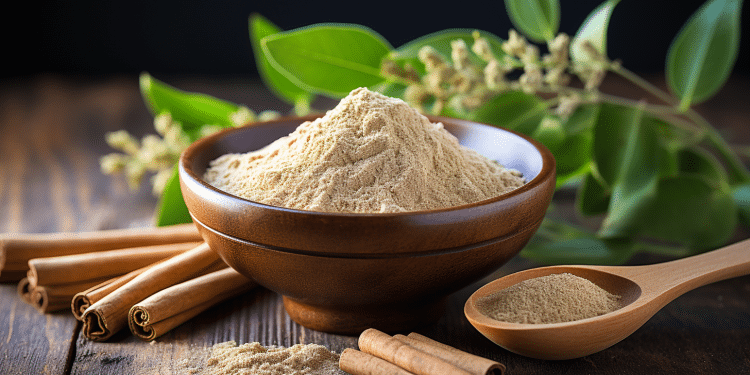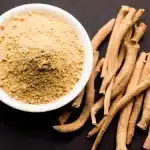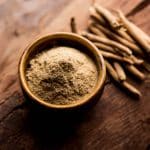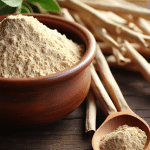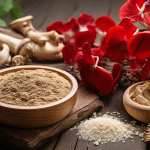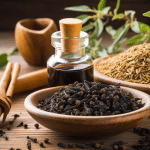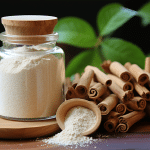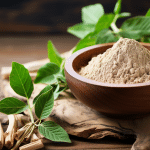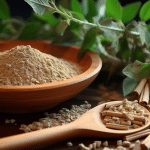Ashwagandha is an Ayurvedic herb used in alternative medicine to treat stress, combat fatigue, enhance memory, enhance sleep, enhance immunity, and perform a variety of other functions. Ashwagandha is commonly recommended to treat acne, but there is some debate about the claim, with others going so far as to claim ashwagandha may actually trigger acne and pimples. But is it true, can Ashwagandha cause acne?
Does Ashwagandha Cause Acne?
While there are no studies specifically on the affect of Ashwagandha on acne, Ashwagandha may make acne worse for some men who tend to suffer from hormonal acne due to its ability to increase testosterone. Also, taking too much Ashwagandha may also make acne worse by increasing inflammation in the body. However, at the right dosage, Ashwagandha has been shown to reduce inflammation in the body, so for those suffering from inflammatory acne due to a poor diet, or other pro-inflammatory factors, Ashwagandha could help clear up inflammatory acne.
That is the short, general answer. But in order to understand completely whether Ashwagandha is going to help or worsen acne, you have to understand whether or not acne is predominantly inflammatory. I explain the differences below, as well as how Ashwagandha affects each type.
How Ashwagandha Affects Different Types of Acne
Acne can either be inflammatory, where pimples are caused mostly by bacteria causing infection underneath the skin, or hormonal and non-inflammatory, where pimples are caused mostly by excessive sebum production leading to blocked pores. This distinction is important, as the kind of acne you have affects whether Ashwagandha makes your pimples and acne worse or better, as explained below.
Ashwagandha Affects on Hormonal Acne
If you suffer from hormonal, non-inflammatory acne, Ashwagandha may worsen the situation by changing the hormonal levels in your body, which, in turn, leads to oily skin and blocked pores. More specifically, Ashwagandha has been linked to the onset of acne because its active compound, withanolide, impacts your body’s hormonal regulation, particularly your androgenic hormones. One of these androgen hormones is testosterone, which is also a hormone that is indirectly responsible for causing acne breakouts in men, because high levels of it can increase sebum production, a substance your skin produces that can plug pores, leading to breakouts.
If you suffer from inflammatory acne, Ashwagandha may worsen the pimples if you consume too much Ashwagandha. This is because while Ashwagandha has anti-inflammatory properties, taking too much Ashwagandha may have the opposite effect, increasing inflammation, which could result in inflammatory acne, in which bacteria plays a part by blocking pores.
At a scientific level, although there is no convincing evidence that shows that Ashwagandha is a singular cause, or cure, of acne, a few studies show that it does indeed tend to worsen existing acne. One study found that taking 500 mg of Ashwagandha three times per day for four weeks led to increased levels of skin bacteria in people with mild-to-moderate acne.
Ashwagandha Affects on Inflammatory Acne
If you suffer from acne caused by inflammation, taking Ashwagandha can be helpful in fighting your pimples as Ashwagandha has anti-inflammatory properties. Also, this decrease in inflammation can help reduce the swelling and pain of acne cysts as well. However, as mentioned earlier, taking too much Ashwagandha may actually worsen this kind of acne by increasing inflammation. You should not have any issues as long as you follow dosage recommendations from whatever supplement you choose to use. Sometimes, less IS more.
To avoid this paradoxical effect, you should consult with your physician, who can recommend a better dosage to start off with, so that you know how you will react to the Ashwagandha. Ashwagandha can also help to decrease the sebum production of some individuals, but keep in mind it may increase the sebum production of others as well, so taking it might have some benefits too if you suffer from acne that is not caused by inflammation. Again, check with your health care provider to find out best dosages and duration of use guidelines.
How to Use Ashwagandha for Acne
First, speak with your travel physician. You should speak with a physician or dermatologist before starting Ashwagandha to treat your pimples, as they will have to ensure the herb is right for you. They will also be able to tell you the exact dosage you should take and work out a schedule for you.
You will probably be asked to return in a couple of weeks to see if the treatment is working, and if adjustments need to be made. When taking Ashwagandha internally, it may take six weeks before you start seeing results.
Second, think about your application method. Your health care provider will guide you on how to take Ashwagandha, but generally, it comes either as a capsule or as a powder. Other methods of administration include tea, extracts, and creams, which might be better for you if the ashwagandha causes digestive discomfort.
Third, be on the lookout for any negative reactions. If you experience any negative reactions while taking Ashwagandha, you should stop immediately and seek medical attention. For instance, if you develop worse acne, then your doctor might lower your dosage or stop using it.
Other side effects include drowsiness, digestive discomfort, and illness. Ashwagandha may either potentially help or make acne worse depending on what kind of acne you have, what dosage you are taking, and your personal makeup. If you have acne caused by inflammation, taking an appropriate dose of Ashwagandha may help, but taking too much may paradoxically worsen it. If you have acne that is more affected by hormonal changes, then Ashwagandha can worsen acne by increasing your testosterone levels. However, Ashwagandha can decrease oiliness on the skin for some people, so if you suffer from non-inflammatory acne, then Ashwagandha might be helpful.
Learn more about other side effects:
With so many factors involved, your best move is to consult with your physician, who can provide you with a better treatment plan for your condition, which may or may not involve Ashwagandha.
